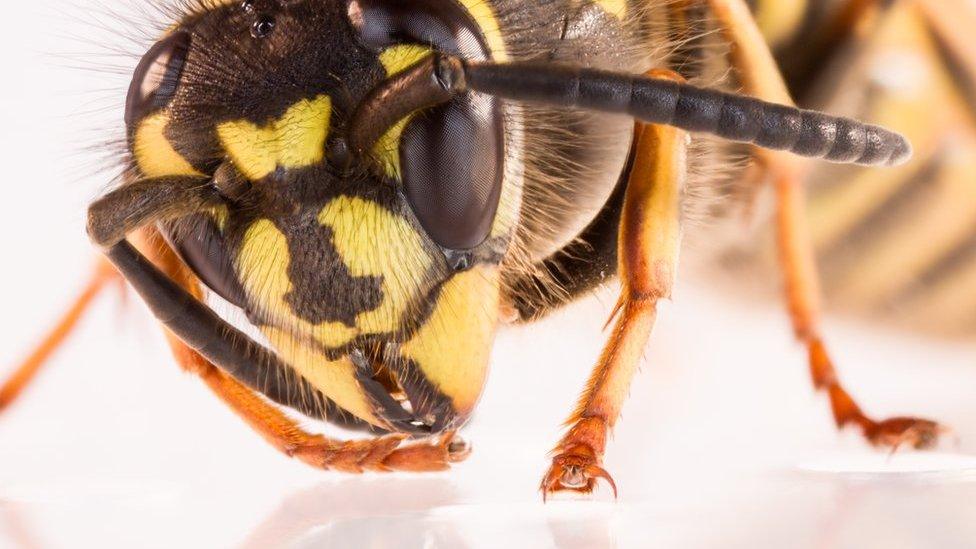Where have all the wasps gone?
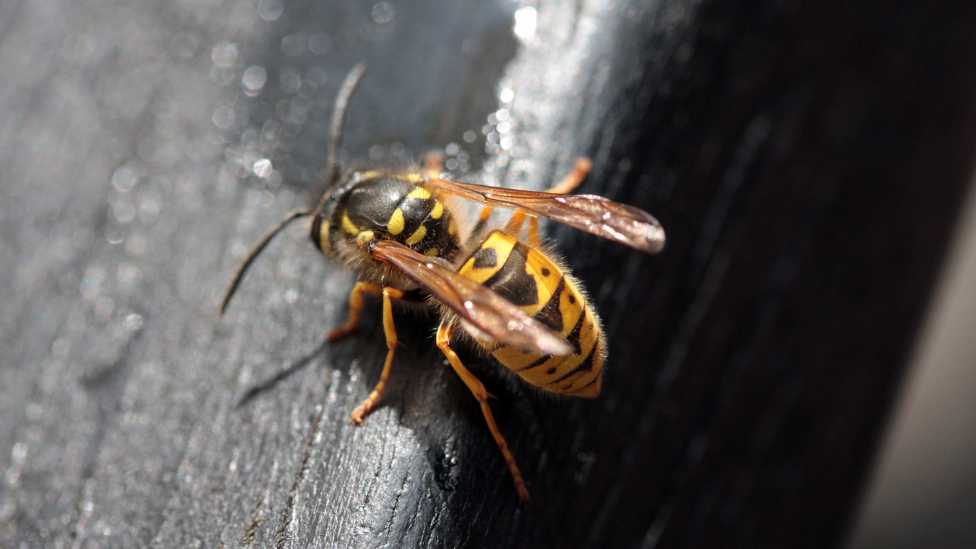
Wasps need lots of insects to feed their young, so thrive in the warmer months
- Published
Despite their bad reputation and tendency to disrupt picnics, wasps are an important part of our ecosystem.
During this time of year, it can seem like most outdoor activities are plagued by the flying insects... but they appear to have lacked their usual numbers in 2024.
Climate change has had a global impact on the declining number of insects studies have claimed, and recent bouts of wetter weather have hit wasps especially hard.
A change in the number of wasps has been monitored by gardeners, experts and pest controllers, but what do wasps do, why do we need them and will they return?

James Tennent said the decline was "odd" and hard to explain
"The numbers are so low it's unbelievable," said EraserPest owner James Tennent, who was called out to treat between 60 and 80 wasp nests this time last year.
In comparison, his company - which covers Essex, Suffolk and Cambridgeshire - was called out to deal with eight nests during June 2024 and only about 10 in July.
'As big as basketballs'
"We had done a lot by this time last year and couldn't cope with the amount of calls," Mr Tennent said.
"This year there's been some days where we're waiting for the phone."
He believed the weather had an impact on the number of wasps and nests being found.
"People haven't been outside as much to spot them building up," he said.
"Some of the ones we have been to this year are as big as basketballs, or bigger."
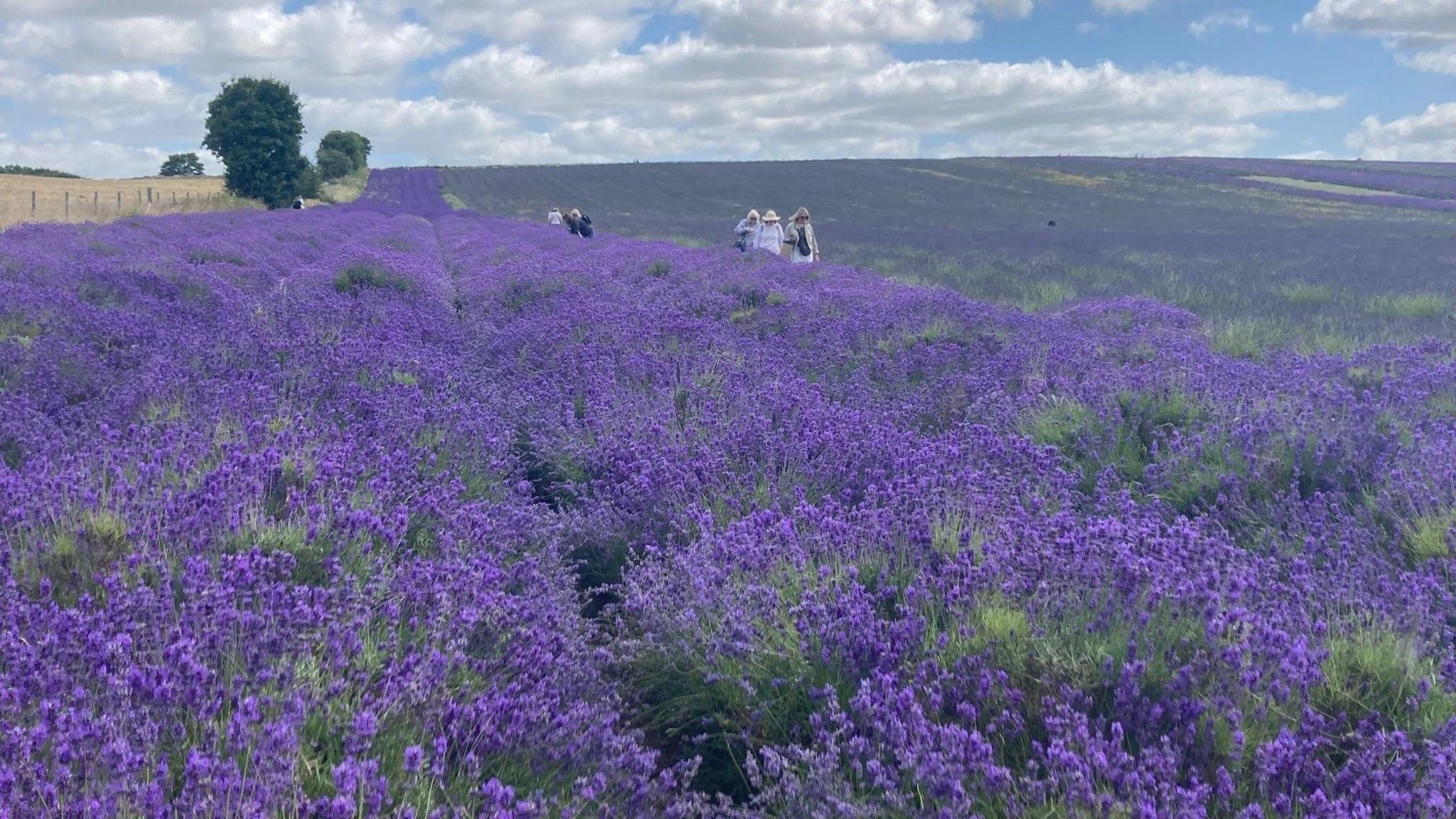
Lavender farms in Hertfordshire and Norfolk have noticed a lack of nests in their fields this year
Hitchin Lavender Farm in Hertfordshire said it had noticed an "unusually low" number of wasps around the time they typically begin to build up.
It is the same for Norfolk Lavender, in Heacham, near King's Lynn. A spokesperson said there would usually be lots of wasps flying around the restaurant tables, "but there has been a noticeable absence".
Typically, the farm expects to find a couple of nests in the lavender fields each year but, so far, it has not found any.
Although pesky for visitors, wasps are accidental pollinators and play a valuable part in the pollination process.
And without wasps, the world could be overrun with spiders and insects, according to the Natural History Museum, external.
Each summer, wasps in the UK capture about 14 million kilogrammes of insects such as caterpillars and greenfly, making them important friends to gardeners.
Peterborough-based insect conservation charity Buglife said it was not just the East of England that had seen a fall in wasp numbers but the whole of the UK.
It said this was "almost certainly a direct consequence of the wet weather", winter flooding and general dampness leading to mould growth, impacting the winter survival rate.
"Many wasp nests are created in the ground and will also have been severely impacted by the further flooding across the country in spring and early summer," said a spokesperson for the charity.
They added other changes to the climate such as warmer and drier summers could help wasps, but too much heat created a "real risk" that entire nests could be wiped out.
The Buglife spokesperson continued: "A loss of wasps will impact us in a number of ways.
"It leads to reduced pollination, and without wasps our plants are more likely to be eaten by insect larvae otherwise controlled by wasps."
A bumper year in 2025?
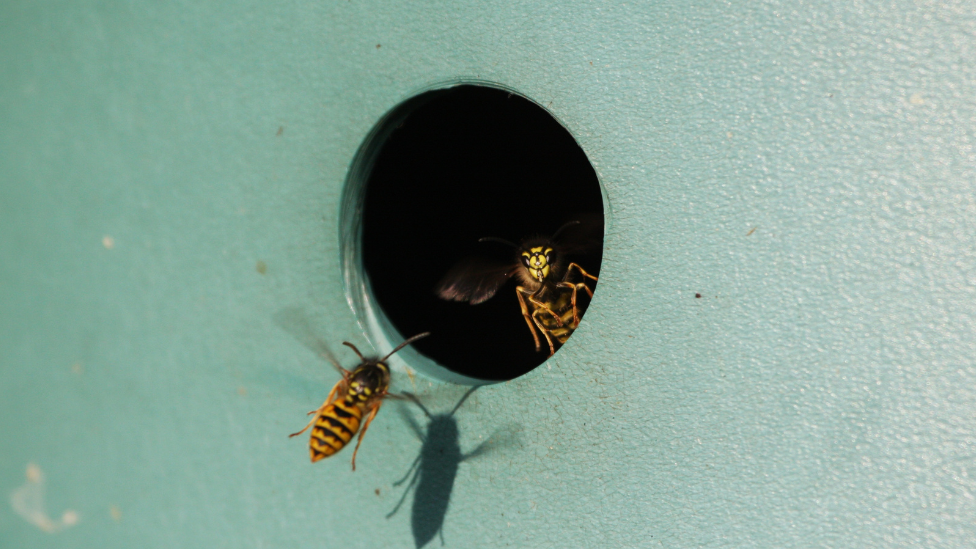
Female wasps hibernate during winter in sheltered areas and begin forming new colonies in the warmer weather
There has been a decline in insect numbers around the globe with butterflies, moths, bees, wasps and dung beetles amongst the most at risk according to BugLife, external.
Thomas Ings, an associate professor in zoology specialising in entomology at Anglia Ruskin University in Cambridge, has a long-standing interest in wasps.
He said the population of the species tended to fluctuate from year to year, so it was difficult to say if there was a long-term decline.
"There is evidence what happens in the year before influences what we get the following year," said Mr Ings.
"When there are a lot more wasps in one year, you do tend to have slightly fewer wasps in the next.
"It's probably better to say you can have a bumper year following a bad year, so it could be next year is a better year for wasps, depending on the weather conditions."
Clarification 8 April 2025: This article was updated to include additional information about scientific studies that have looked at the impact of climate change on insects. It now includes links to a BBC article reporting a study by Dr Charlie Outhwaite of UCL and a link to a report by charity Bugslife.
Get in touch
Do you have a story suggestion for the East of England?
Follow East of England news on X, external, Instagram, external and Facebook: BBC Beds, Herts & Bucks, external, BBC Cambridgeshire, external, BBC Essex, external, BBC Norfolk, external, or BBC Suffolk, external.
Related stories
- Published25 July 2024
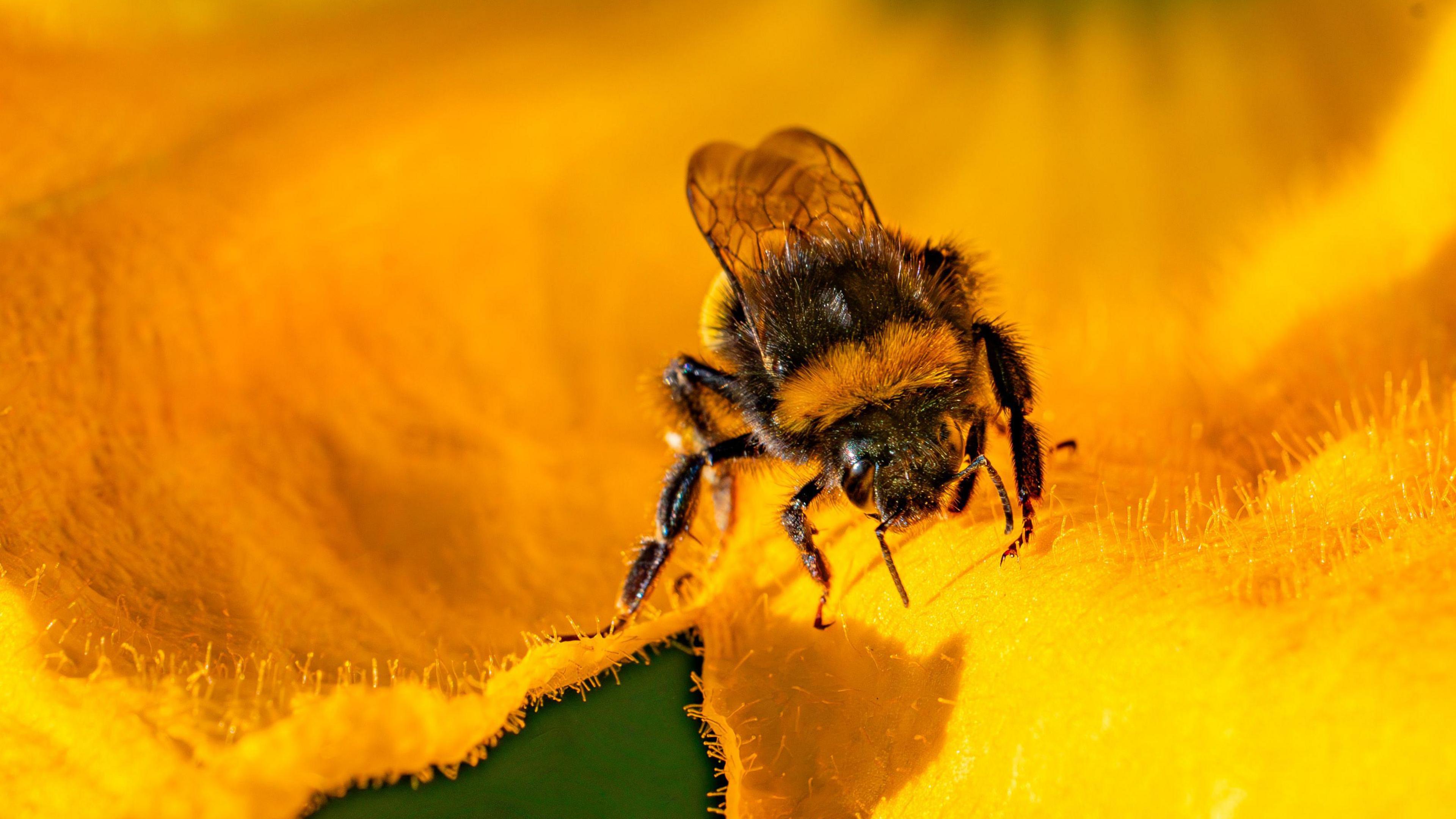
- Published20 April 2022
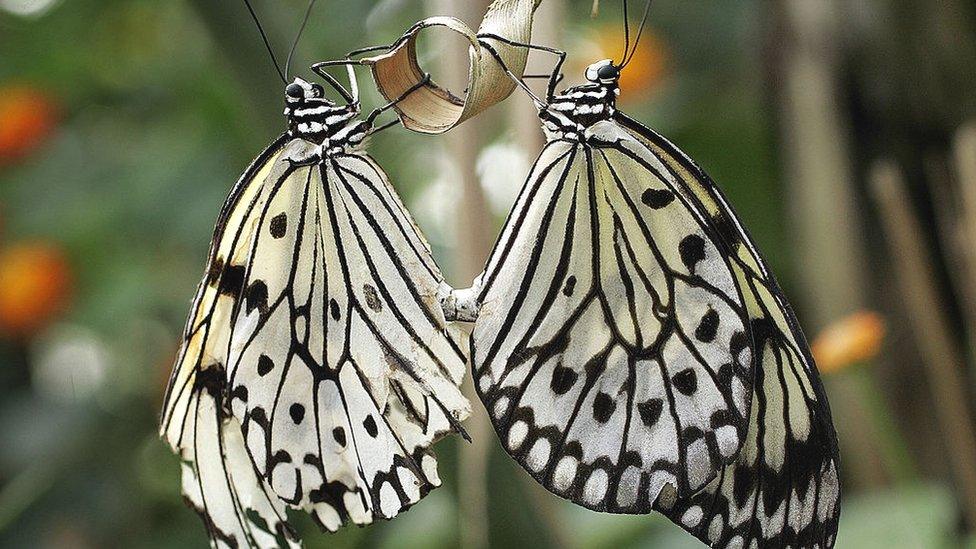
- Published25 August 2017
